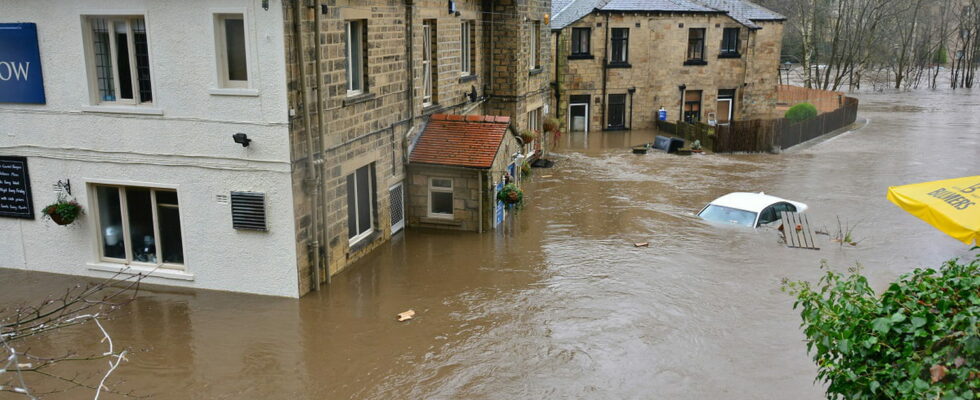On Thursday October 17, 2024, Free Mobile users located in Ardèche did not receive the flood alert sent by FR-Alert, the state system signaling imminent danger. Some only got it several days later.
On October 17, a large part of France was confronted with a Cévennes episode: a usual meteorological phenomenon during this season, but particularly intense this time, particularly in certain regions. During the day, Météo France had then placed several departments on orange vigilance, and even six on red vigilance, the highest level of alert in the face of natural dangers, in this case floods, floods and very heavy precipitation. Cities are underwater and roads have been cut for safety reasons.
Faced with this torrential episode, the Ardèche prefecture used FR-Alert, a system set up by the Government in 2022 to warn in real time all people with a mobile phone of their presence in a threatened area. a danger. She asked residents to return home before 6 p.m. and to turn off water, gas and electricity, for safety. Unfortunately, it seems that not everyone was warned. If customers of Bouygues, SFR or Orange have indeed received the alert, this is not the case for Free Mobile subscribers. Worse still, some Ardéchois still receive messages from the emergency alert system by telephone, five days after the events!
FR-Flood alert: better late than never
Thus, in Ardèche, heavy rainfall led to significant flooding. Entire roads were blocked, and numerous calls to evacuate were made. A crisis management unit was opened and more than 230 interventions by firefighters were recorded. To use the words of Agnès Pannier-Runacher, the Minister of Ecological Transition, it was “unheard of in living memory”.
As reported of users on the social network (formerly Twitter) and as a member of the editorial staff had the unfortunate experience, Free Mobile subscribers located in the region concerned did not receive the FR-Alert message, or with a delay of several hours. On the other hand, no problem for customers of other operators, all messages seem to have arrived simultaneously.
This Tuesday, October 22, alerts continue to flood in to Free subscribers. For example, a person received one to alert them of “intense rain”with “the entire western part of Ardèche [qui] is subject to heavy rainfall, river overflow and runoff.”. However, she had not even been warned on October 17 by the operator! A real running gag!
“There, there are floods and I in Aubenas do not risk much, but the day when it is a much more serious disaster and which deserves a rapid response from the population (…) all the subscribers from Free, will be without any alert, without any means of protecting themselves”got annoyed with France Blue a subscriber living in Aubenas, who is definitely considering changing operator.
FR-Flood alert: Free still misses the mark
Johnny Douvinet, professor of geography at the Faculty of Avignon who supports the Ministry of the Interior in the deployment of FR-Alert, explained to the regional site that one of the large operators is less reliable than the others, without however citing any name. “There was a seemingly technical problem on the side of an operator, we have already checked and observed it, at least during certain exercises”he declared. It’s easy to guess who it is…
This is not the first time that Free has encountered problems in the distribution of FR-Alert messages. Already last January, the operator’s subscribers had not received the test tsunami warning message (see our article). The reason for the current malfunction is still unknown, but it is possible that it comes from the SIBs (System Information Blocks) – the SIB12, which is supposed to transmit information about the commercial mobile alert system, might not have been issued by Free on the network – or software incompatibility on the ISP antennas.
For his part, Johnny Douvinet hypothesizes a malfunction of the cells, which are responsible for relaying the alert messages issued by the prefecture. “It is possible that there is a cell, or a few cells on the operators’ side which continue to broadcast the signal, while on the authorities’ side it has been stopped”.
The FR-Alert system is revolutionary in idea, but in execution it still needs to be optimized. THE Public officials are well aware of this problem but, almost two years after the launch of the system, it is still not up to par. It is imperative to resolve this situation as quickly as possible because, in some cases it can be a matter of life and death…

